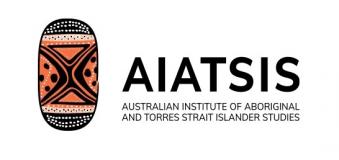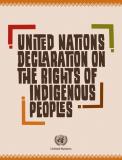
CARE Principles for Indigenous Data Governance
Global, 2020
The CARE Principles for Indigenous Data Governance are global principles regarding Indigenous Data Sovereignty. Drawing upon key documents such as OCAP, National Inuit Strategy on Research and the FAIR principles for scientific data management, CARE principles serve to support the inclusion of Indigenous Peoples globally in data control and usage.

Holding Space: A Toolkit for Tribal-Academic Partnerships
US, 2018
Holding Space: A Toolkit for Tribal-Academic Partnerships is a US based project aimed at developing a toolkit to support relationships between research groups and tribes. Essential pillars outlined include governance, trust and culture.

Te Mata Ira — Faces of the Gene: Developing a Cultural Foundation for Biobanking and Genomic Research Involving Māori
Aotearoa (NZ), 2016
Te Mata Ira was a multi-year research project based in New Zealand investigating Māori views on genomic research and biobanking with the goal of developing cultural guidelines for genomic research. Faces of the Gene: Developing a Cultural Foundation for Biobanking and Genomic Research Involving Māori outlines specific aspects of the project including Māori cultural concepts arising from engagement in the project’s workshop discussions.

'Walk Softly and Listen Carefully': Building Research Relationships with Tribal Communities
(US, 2012)
‘Walk softly and listen carefully’: Building research relationships with tribal communities is a publication out of Montana that provides valuable insight to help develop meaningful research relationships with tribal communities. Although the paper primarily discusses American Indian/Alaska Native (AI/AN), the core values outlined are applicable to all Indigenous research partnerships.

Guidelines for Ethical Research in Australian Indigenous Studies
AU, 2012
The AIATSIS Guidelines for Ethical Research in Australian Indigenous Studies is a code that sets the standard for Indigenous research in Australia. The code outlines four main principles: Indigenous self-determination, Indigenous leadership, Impact & Value, and Sustainability & Accountability.

Establishing a Māori Ethical Framework for Genetic Research with Māori
Aotearoa (NZ), 2011
Establishing a Māori Ethical Framework for Genetic Research is a report out of New Zealand discussing models of Māori health and how genetic research and information can be incorporated into the holistic Hauora Māori conceptualisation of human health.

United Nations Declaration on the Rights of Indigenous Peoples (UNDRIP),
Global, 2007
The United Nations Declaration on the Rights of Indigenous Peoples (UNDRIP) is an international declaration adopted in September 2007, outlining 46 Articles focused on respecting and protecting the rights of Indigenous peoples worldwide. It affirms Indigenous rights to self-determination, culture, lands, resources, and participation in decision-making processes that affect them.